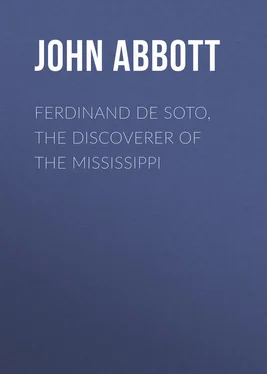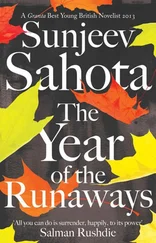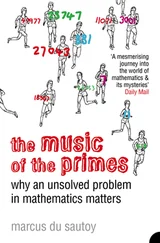John Abbott - Ferdinand De Soto, The Discoverer of the Mississippi
Здесь есть возможность читать онлайн «John Abbott - Ferdinand De Soto, The Discoverer of the Mississippi» — ознакомительный отрывок электронной книги совершенно бесплатно, а после прочтения отрывка купить полную версию. В некоторых случаях можно слушать аудио, скачать через торрент в формате fb2 и присутствует краткое содержание. Жанр: foreign_antique, foreign_prose, на английском языке. Описание произведения, (предисловие) а так же отзывы посетителей доступны на портале библиотеки ЛибКат.
- Название:Ferdinand De Soto, The Discoverer of the Mississippi
- Автор:
- Жанр:
- Год:неизвестен
- ISBN:нет данных
- Рейтинг книги:3 / 5. Голосов: 1
-
Избранное:Добавить в избранное
- Отзывы:
-
Ваша оценка:
- 60
- 1
- 2
- 3
- 4
- 5
Ferdinand De Soto, The Discoverer of the Mississippi: краткое содержание, описание и аннотация
Предлагаем к чтению аннотацию, описание, краткое содержание или предисловие (зависит от того, что написал сам автор книги «Ferdinand De Soto, The Discoverer of the Mississippi»). Если вы не нашли необходимую информацию о книге — напишите в комментариях, мы постараемся отыскать её.
Ferdinand De Soto, The Discoverer of the Mississippi — читать онлайн ознакомительный отрывок
Ниже представлен текст книги, разбитый по страницам. Система сохранения места последней прочитанной страницы, позволяет с удобством читать онлайн бесплатно книгу «Ferdinand De Soto, The Discoverer of the Mississippi», без необходимости каждый раз заново искать на чём Вы остановились. Поставьте закладку, и сможете в любой момент перейти на страницу, на которой закончили чтение.
Интервал:
Закладка:
Upon the open field the arrows of the natives were quite impotent. A bullet could strike the heart at twice or three times the distance at which an arrow could be thrown. The Spaniards, hotly pursued, retreated from this broken ground several miles back into the open plain. Many were slain. Here the rout was arrested by the cavalry and the discharges from the field-pieces, which broke the Indian ranks.
The natives, however, boldly held their ground, and the Spaniards, disheartened and mortified by their discomfiture, encamped upon the plain. It was very evident that God had not listened to their prayers.
For several days they remained in a state of uncertainty. For five hundred Spaniards to retreat before eight hundred natives, would inflict a stigma upon their army which could never be effaced. They dared not again attack the natives who were flushed with victory in their stronghold. They were well aware that the band of warriors before them was but the advanced guard of the great army of Uracca. These eight hundred natives were led by one of Uracca's brothers. Even should these Indians be attacked and repulsed, they had only to retreat a few miles, cross the river Arva in their canoes, and on the northern banks join the formidable army of twenty thousand men under their redoubtable chief, who had already displayed military abilities which compelled the Spaniards to regard him with dread.
Affairs were in this position when Uracca adopted a stratagem which completely deceived the Spaniards and inflicted upon them very serious loss. He caused several of his warriors to be taken captive. When closely questioned by Don Pedro where gold was to be found, and threatened with torture if they refused the information, they with great apparent reluctance directed their captors to a spot, at the distance of but a few leagues, where the precious metal could be obtained in great abundance. These unlettered savages executed their artifice with skill which would have done honor even to European diplomatists.
Don Pedro immediately selected a company of forty of his most reliable men and sent them to the designated spot. Here they were surrounded by Indian warriors in ambush, and the whole party, with the exception of three, put to death. The three who escaped succeeded in reaching the Spanish camp with tidings of the disaster. Don Pedro in his rage ordered his captives to be torn to pieces, by the bloodhounds. They were thrown naked to the dogs. The Spaniards looked on complacently, as the merciless beasts, with bloody fangs, tore them limb from limb, devouring their quivering flesh. The natives bore this awful punishment with fortitude and heroism, which elicited the admiration of their foes. With their last breath they exulted that they were permitted to die in defence of their country.
The expedition of Don Pedro had thus far proved an utter failure. He had already lost one-fourth of his army through the prowess of the natives. The prospect before him was dark in the extreme. His troops were thoroughly discouraged, and the difficulties still to be encountered seemed absolutely insurmountable. Humiliated as never before, the proud Don Pedro was compelled to order a retreat. He returned to Panama, where, as we have mentioned, he had removed his seat of government from Darien. Panama was north of Darien, or rather west, as the isthmus there runs east and west. Its seaport was on the Pacific, not the Atlantic coast.
Uracca, having thus rescued his country from the invaders, did not pursue the retreating Spaniards. He probably in this course acted wisely. Could Don Pedro have drawn his enemies into the open field, he could undoubtedly have cut down nearly their whole army with grape shot, musketry, and charges by his strongly mounted steel-clad cavaliers. A panic had however pervaded the Spanish camp. They were in constant apprehension of pursuit. Even when they had reached Panama, they were day after day in intense apprehension of the approach of their outnumbering foes, by whose valor they had already been discomfited, and so greatly disgraced.
"When the Spaniards looked out towards the mountains and the plains," writes the Spanish historian Herrera, "the boughs of trees and the very grass, which grew high in the savannas, appeared to their excited imagination to be armed with Indians. And when they turned their eyes towards the sea, they fancied that it was covered with canoes of their exasperated foemen."
Uracca must have been in all respects an extraordinary man. We have the record of his deeds only from the pen of his enemies. And yet according to their testimony, he, a pagan, manifested far more of the spirit of Christ than did his Christian opponents. In the war which he was then waging, there can be no question whatever that the wrong was inexcusably and outrageously on the side of Don Pedro. We cannot learn that Uracca engaged in any aggressive movements against the Spaniards whatever. He remained content with expelling the merciless intruders from his country. Even the fiendlike barbarism of the Spaniards could not provoke him to retaliatory cruelty. The brutal soldiery of Spain paid no respect whatever to the wives and daughters of the natives, even to those of the highest chieftains.
On one occasion a Spanish lady, Donna Clara Albitez, fell into the hands of Uracca. He treated her with as much delicacy and tenderness as if she had been his own daughter or mother, and availed himself of the first opportunity of restoring her to her friends.
Though De Soto was one of the bravest of his cavaliers, and was so skilful as an officer that his services were almost indispensable to Don Pedro, yet the governor was anxious to get rid of him. It is probable that he felt somewhat condemned by the undeniable virtues of De Soto; for the most of men can feel the power of high moral principle as witnessed in others. De Soto, intensely proud, was not at all disposed to play the sycophant before his patron. He had already exasperated him by his refusal to execute orders which he deemed dishonorable. And worst of all, by winning the love of Isabella, he had thwarted one of the most ambitious of Don Pedro's plans; he having contemplated her alliance with one of the most illustrious families of the Spanish nobility.
Don Pedro did not dare to send De Soto to the scaffold or to order him to be shot. He had already braved public opinion by the outrageous execution of Vasco Nuñez, without a shadow of law or justice, and had drawn down upon himself an avalanche of condemnation from the highest dignitaries of both church and state. He was trembling through fear that the Spanish government might call him to account for this tyrannic act. Thus situated, it was highly impolitic to send De Soto, who was greatly revered and admired by the army, to the block. He therefore still sought, though with somewhat waning zeal, to secure the death of De Soto on the field of battle. De Soto could not fail to perceive that Don Pedro was not his friend. Still, being a magnanimous man himself, he could not suspect the governor of being guilty of such treachery as to be plotting his death.
When the little army of Spaniards was beleaguered at Borrica, and De Soto with his cavalry was scouring the adjacent country on foraging expeditions, he chanced to rescue from captivity M. Codro, an Italian philosopher, who had accompanied the Spaniards to Darien. In the pursuit of science, he had joined the forty men who, under the command of Herman Ponce, had been sent as a reinforcement to Borrica. While at some distance from the camp on a botanical excursion, he was taken captive by the natives, and would have been put to death but for the timely rescue by De Soto.
M. Codro was an astrologer. In that superstitious age he was supposed by others, and probably himself supposed, that by certain occult arts he was able to predict future events. Six months after the return of the Spaniards from their disastrous expedition against Uracca, this singular man sought an interview with De Soto, and said to him:
Читать дальшеИнтервал:
Закладка:
Похожие книги на «Ferdinand De Soto, The Discoverer of the Mississippi»
Представляем Вашему вниманию похожие книги на «Ferdinand De Soto, The Discoverer of the Mississippi» списком для выбора. Мы отобрали схожую по названию и смыслу литературу в надежде предоставить читателям больше вариантов отыскать новые, интересные, ещё непрочитанные произведения.
Обсуждение, отзывы о книге «Ferdinand De Soto, The Discoverer of the Mississippi» и просто собственные мнения читателей. Оставьте ваши комментарии, напишите, что Вы думаете о произведении, его смысле или главных героях. Укажите что конкретно понравилось, а что нет, и почему Вы так считаете.












